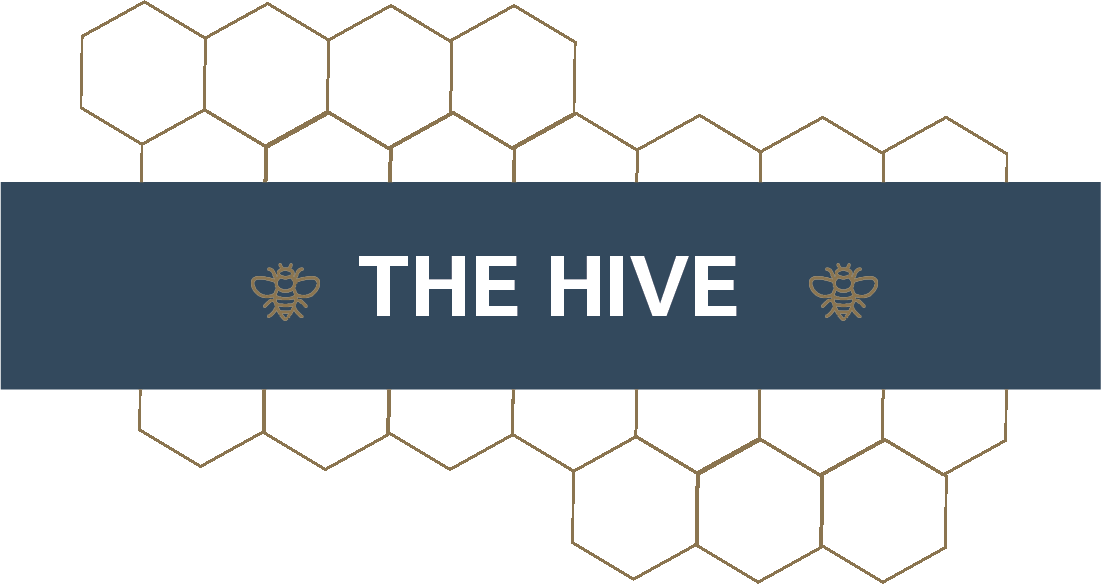
Everyone knows that April showers bring May flowers, but did you also know April brings Neurodiversity Celebration Month??
April 2nd is recognized by the United Nations as World Autism Day. As a result, many organizations designate April as Autism Awareness Month. Some organizations, such as IBM, have taken it a step further and chosen to expand awareness beyond autism and designate April as Neurodiversity Celebration Month (which is appropriately preceded a few weeks by the worldwide Neurodiversity Celebration Week – which this year landed between March 13-19, 2023).

Though you may be familiar with the term autism – are you familiar with the term neurodiversity? Well, if not, have no fear – this month’s blog is here to help!
The term neurodiversity was first coined by Australian sociologist, Judy Singer, in order to “promote equality and inclusion of neurological minorities” (Harvard Health Publishing – Harvard Medical School). Although it originated as a social justice movement, many universities now devote research and provide education regarding neurodiversity. In a 2019 Diversity Newsletter by Stanford Medicine’s Department of Radiology, they describe neurodiversity as –
“…the concept that neurological differences are recognized and respected as natural variations of human beings rather than deficiencies…Neurodiversity represents the idea that people with neurocognitive variants do not need to be cured; they need to be accommodated to realize their unique talents.”
Neurodiversity is considered an umbrella term for neurodivergent conditions such as Autism Spectrum Disorder (ASD), dyslexia, dyspraxia, ADHD and more.
People with neurodivergent conditions often struggle to ‘fit in’ and function effectively in school or work environments. Employers, colleagues, teachers, and peers often identify ways in which they are different and are quick to point out things they cannot do, rather than identify the unique strengths and skillsets they DO possess. , Further, persons with neurodivergent conditions struggle with employment:
- 85% unemployment rate of persons on autism spectrum (TEDx – Neurodiversity and Leadership)
- Adults with ADHD are 60% more likely to lose their job (Neurodiversity in the Workplace)
- Young people with dyslexia experience 3x the average rate of unemployment (Neurodiversity in the Workplace)
The exciting news is that in recent years large corporations such as Goldman Sachs, Dell, IBM, SAP, Microsoft, Google and JP Morgan have launched neurodiverse hiring programs to combat this employment issue. In addition, organizations such as Neurodiversity in the Workplace connect “highly qualified neurodivergent talent” to inclusive businesses. The official website for Neurodiversity Celebration Week provides access to articles where you can learn more about the advantages of hiring a neurodiverse workforce.
Beyond employment, what are ways in which we can best interact with our peers or colleagues who are neurodivergent? According to a recent article by the Harvard Business Review –
“the onus [is] on [neurodivergent] ND individuals to adapt and conform to neurotypical (NT) expectations of communication, which can be harmful and counterproductive to the community…The research-backed view, emerging in recent years, is that NTs and NDs are merely speaking different, but equally valid, social languages. As such, it’s on NT people, as much as it is ND people, to bridge the communication gap.”
This article goes on to list 5 “Acts of Allyship” that you can use to better support the ND individuals in your life:
- Check your assumptions – Don’t assume they aren’t listening just because they aren’t giving the expected (or neurotypical) social cues such as direct eye contact.
- Check your assumptions, again – Don’t assume social traits that you perceive as negative, rude or disrespectful are reflective of their intentions. Work to understand what ND social cues are.
- Communicate as clearly and unambiguously as possible – Avoid euphemisms, sarcasm and vagueness.
- Stay flexible – Sensitivity to sensory input in their environment can make for drastic mood changes throughout their day (so be aware and mindful of this).
- Ask us! – How do you prefer to be communicated with? How can I best support you?
“We should celebrate neurodiversity – the world would be poorer and life duller if we were all the same.” – Neil Milliken
Blog Resources:
Neurodiversity Celebration Week – Neurodiversity in the workforce
https://www.neurodiversityweek.com/business-articles
Neurodiversity at IBM – https://newsroom.ibm.com/Neurodiversity-IBM
Harvard Health Publishing (Harvard Medical School) – “What is Neurodiversity?”
https://www.health.harvard.edu/blog/what-is-neurodiversity-202111232645
Stanford Medicine – Radiology – Diversity Newsletter (Vol. 2, Issue 6)
https://web.stanford.edu/dept/radiology/cgi-bin/raddiversity/wp-content/uploads/2019/08/07-July.pdf
TEDx – Neurodiversity and Leadership
Neurodiversity in the Workplace – https://nitw.org/about-us/
Daivergent – “Neurodiversity Hiring Programs: 8 Companies That Got It Right”
https://daivergent.com/blog/neurodiversity-hiring-programs-8-companies-that-got-it-right
Harvard Business Review – “Stop Asking Neurodivergent People to Change the Way They Communicate”
https://hbr.org/2022/10/stop-asking-neurodivergent-people-to-change-the-way-they-communicate
Other Resources:
What is Neurodiversity?
Books by John Elder Robison (for first-hand perspective):
– Look Me in the Eye: My Life with Asperger’s
– Be Different: Adventures of a Free-Range Aspergian with Practical Advice for Aspergians, Misfits, Families and Teachers

Just a reminder that Texas State has the Clinic for Autism, Research, Evaluation, and Support (CARES). CARES is a part of the special education and school psychology graduate programs at Texas State University.